Scuba Diving Bends:
What is Decompression Illness?
The scuba diving bends is what most divers probably think about when they think of dive illnesses or accidents.
Better known simply as "the bends" or decompression illness (dci for short), it is something we all want to avoid.
According to Divers Alert Network (DAN), approximately 1,000 U.S. scuba divers suffer from the bends each year so it is not an uncommon occurrence.
What are the Scuba Diving Bends or Decompression Illness (DCI)?
"The bends" is the illness that results from nitrogen bubbles being formed in your blood stream and/or tissues.
It is caused by decreasing pressure too quickly after a period of increased pressure (such as ascending too quickly after a dive).
It gets its name from the fact that nitrogen bubbles may form in or near the joints, causing pain and causing the diver to "bend over".
What Causes the Scuba Diving Bends or Decompression Illness?
The main cause of the bends is a change in pressure and what this does to the nitrogen in our body.
The air in a standard scuba tank (this excludes nitrox diving) is comprised of 79% nitrogen and 21% oxygen.
As we descend, pressure increases. Thus the nitrogen in our tanks will increase in pressure as we go deeper.
Our body tissue absorbs the nitrogen we are breathing from the air in our tanks in proportion to the surrounding pressure. So the deeper we go and the more pressure being exerted, the more nitrogen our tissues will absorb to maintain equilibrium.
The longer and deeper the dive, the more nitrogen is absorbed by our bodies. As long we we remain under pressure there is no problem.
The problem occurs when we begin to ascend and the pressure begins to decrease. Since we are decreasing the pressure as we ascend, our body wants to decrease the amount of nitrogen in our system to maintain equilibrium.
Since the body does not metabolize this nitrogen, we must somehow get rid of it.
The classic example of explaining what the bends is and how it occurs is to picture a bottle of soda (or bottle of beer). If you slowly open the cap and let the pressure off at a slow rate, the contents in the bottle won't form bubbles and fizz all over.
However, if you quickly take the cap off the bottle, the liquid will form bubbles and come spouting out of the bottle (and who hasn't had a bottle of beer fizz over the top?).
This is exactly what happens to the nitrogen in our bodies as we ascend after a dive.
We are decreasing pressure and the nitrogen is released from our tissues into our bloodstream. It then reaches our lungs and is exhaled as we breathe.
Letting the nitrogen out at a safe rate is what is key for the diver. If we ascend too quickly, the body won't be able to expel all the nitrogen and bubbles will form in our tissue and bloodstream.

So we have to slowly decrease the pressure so our bodies have time to safely expel the nitrogen without forming bubbles. Just like that bottle of soda (or beer if you will).
This is the reason why a slow, controlled ascent is so important in scuba diving. You are letting the body get rid of the accumulated nitrogen.
It is also the reason why every non-decompression dive should end with at least a 3 minute safety stop and the next dive should never begin before an appropriate surface interval.
Want to stay down longer and improve your buoyancy control and other diving skills? Our free report "Increase Your Bottom Time" along with our practical, weekly actionable tips will have you looking like a seasoned diver in no time. So come join us and see improvement on your very next dive!
(Click on the photo to join us now!)
What's New
-
Unofficially Summer
May 25, 24 07:19 AM
Well it is finally here. Memorial Day weekend and the unofficial start of summer! Wishing everyone a happy and healthy holiday weekend. Hopefully the weather cooperates wherever you are and you will b… -
Happy New Year
Jan 01, 24 06:00 AM
Happy New Year everyone! I hope everyone is well and had a fun New Years Eve! May your new year be filled with lots of wonderful dives. All the best to you and yours in 2024! Let the dives begin. -
Happy Holidays
Dec 14, 23 05:05 AM
I hope everyone is enjoying the holiday season! I am always amazed at how fast time flies and another year is just around the corner. I wanted to pop in and say hi to everyone. I am doing some full ti… -
3 Common Scuba Diving Mistakes New Divers Make
Feb 23, 23 02:18 PM
In this video, I share 3 common scuba diving mistakes beginner divers make. Learn how to correct these for a better - and safer - dive. -
Scuba Diving Tipping Etiquette: How Much And When To Tip Scuba Crew
Feb 06, 23 03:34 PM
Not sure of scuba diving tipping etiquette? In this video I share who to tip, when to tip, how much to tip, tipping on liveaboards, tipping an instructor & more
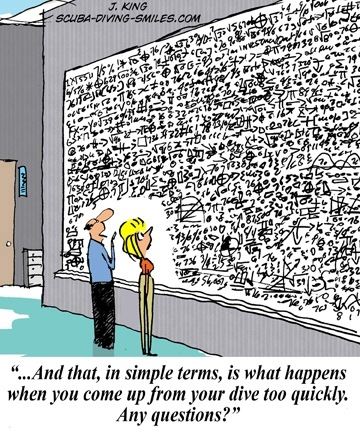


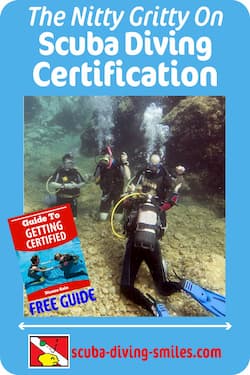

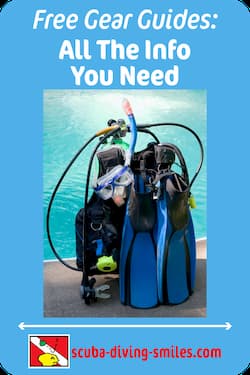

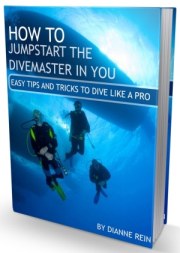
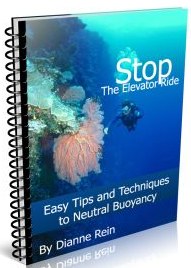
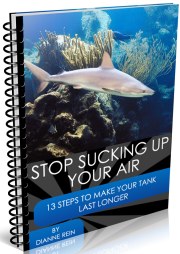
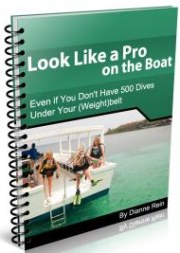

New! Comments
Have your say about what you just read! Leave me a comment in the box below.